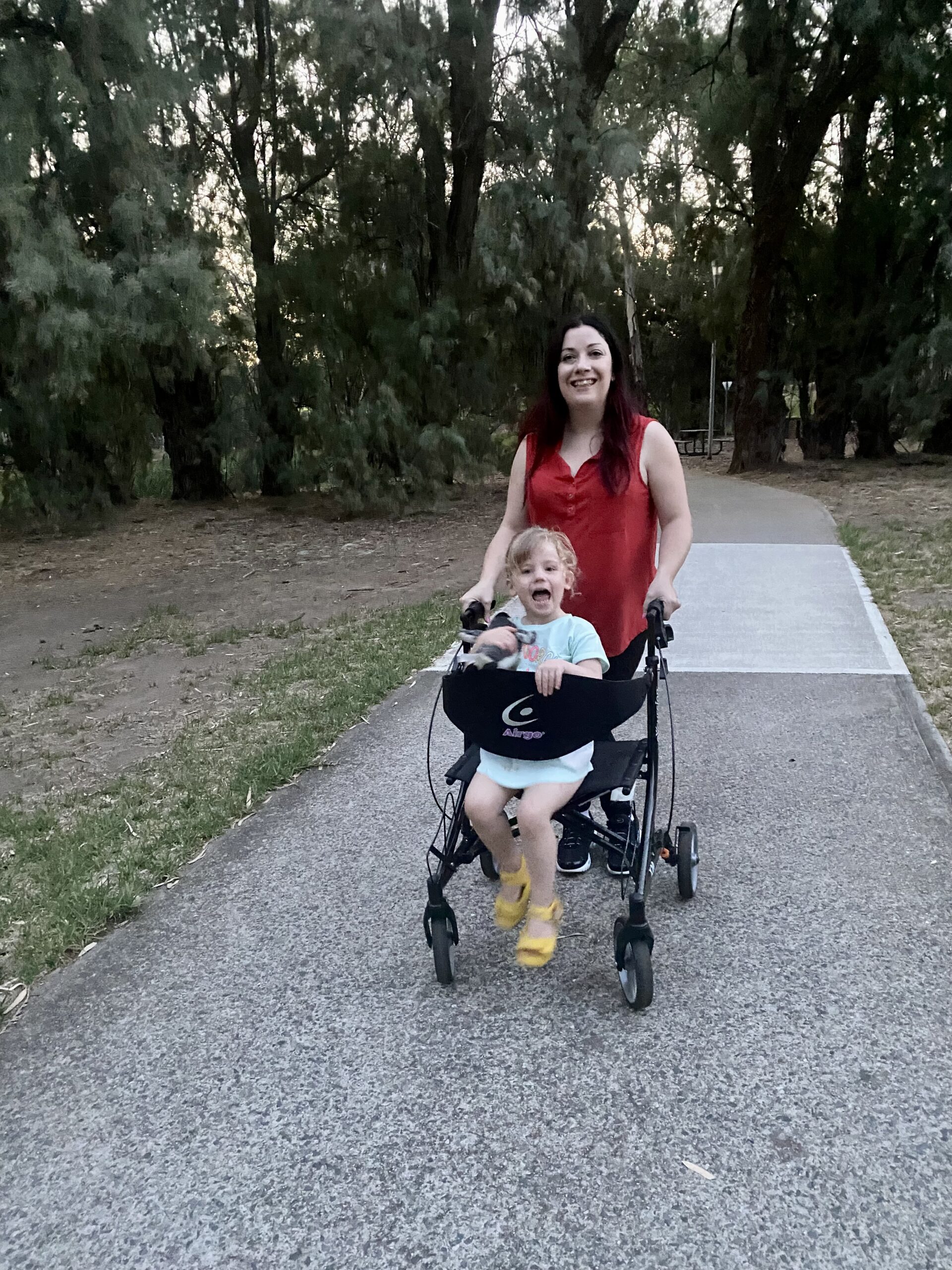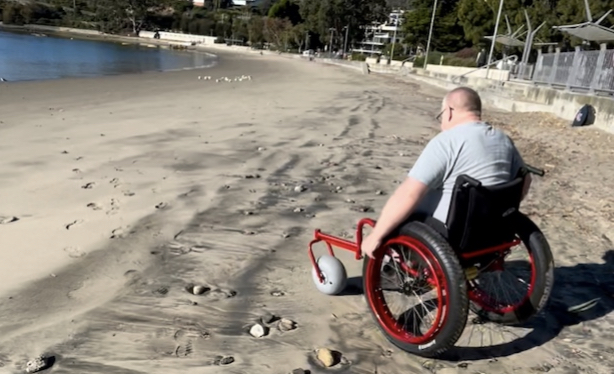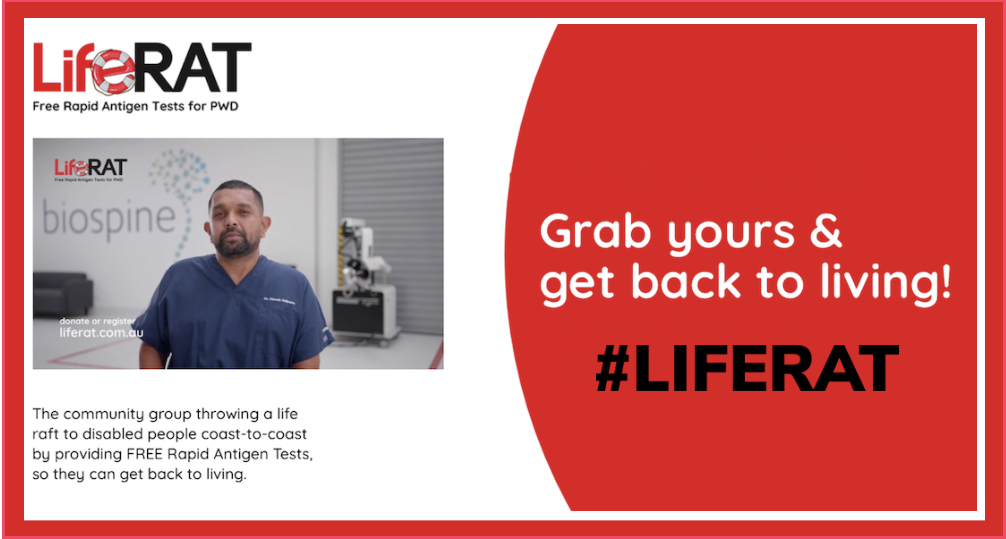My experience with covid -19 as a person with a disability
Written by Tammy Milne – PDA TAS Associate Director
My name is Tammy Milne. I had covid and I survived. For over 2 years now I have avoided the insidious virus like the plague! I’ve taken all the precautions. Triple vaccinated, wear a mask, hand sanitise, limit my contact with the outside world and limit who comes into my home. I have made my support workers all take Rapid Antigen Tests before commencing a shift and I have let go two workers who would not get vaccinated. The longest I spent in self isolation was 49 days. Our state government took protections very seriously and shut our borders early and for an extended period. But then the border opened on the 15th December and a tidal wave of covid washed over our little island state.
For almost two years our little state was covid -19 free and then the flood gates opened. Cases swept through towns, schools, business and homes. After being locked up at home and missing my daughter so much, she is away at University in Hobart, I booked a support worker, we packed the car and the dogs and headed to an AirBnb in Hobart. For the first five days we did outside activities to lessen the risk. We took walks, ate ice-cream on the waterfront and enjoyed the beautiful historic Battery Point, marvelling at the old buildings.
But all our safety protocols were only as good as the weakest link and unfortunately my daughter was mine. After 6 days in Hobart she tested positive to covid-19 which meant I was a close contact. By this stage I had sent my support worker home with the dogs and was relying totally on my daughter and casual support worker for support in Hobart. I had also moved to an inner city hotel to be closer to my daughter.
On the Wednesday we went out for dinner, she then took me back to the hotel and got me settled for the night and left. At 11.30pm she FaceTimed me and said that she was positive. What does this mean for us? I, at this stage was a close contact and so had to go into quarantine and rely on my casual support worker whilst my daughter was out with covid. Things started falling apart rapidly from this time on. My support worker said they did not feel comfortable supporting me as I was a close contact and they felt at risk. I assured them that with PPE, public health said that they were safer working with me than going out to the shops. I rang their union to get advice on where they stood. The Health and Public Sector Union stated that they follow and support health protocols and encourage their members to follow all mandates in their workplaces. Still they (my support worker) declined to work with me.
I was stuck! I was stuck in a hotel and couldn’t get room service into my room as I was in quarantine. They could leave food outside my room but, because of my disability, I could not physically lift the food from the floor outside. I was also unable to shower. I was stuck and stinky and hungry.
One of the management team in the hotel broke hotel protocol and brought me up some tea and toast. Her rational was, ”I have had covid only two weeks ago so I’m immune and just couldn’t leave you up here like this. It is just not moral.”
So this dire situation began to turn around when I rang my state based dedicated disability covid helpline. This happened around 1pm. I told them of the situation and thankfully the seriousness of this predicament was understood and they acted with understanding and empathy.
I received multiple phone calls throughout the day as they worked out a plan for me. Many solutions were mooted; go to hospital for the night, go to a covid care facility or go home. I wanted to go home. And so at 7.30pm a nurse from the covid hotel was dispatched in full PPE to shower me, pack my bags and hunt down some food for me as I hadn’t eaten since the tea and toast earlier in the afternoon. At 9.30pm a patient transport taxi with two lovely young volunteer ambulance folks with the St Johns Ambulance arrived, again in full PPE, to collect me and start my long journey home. I arrived home at 2am Friday morning. My support worker Michelle was in the house already to take over my care. It was deemed she was not a close contact but, as a casual contact, was given permission by the health dept to provide care for me for the next 7 days of isolation. I fell into bed and slept.
I woke the next morning feeling a bit rough and did a Rapid Antigen Test. I went from being a close contact to a positive case just like that!
After registering my positive Rapid Antigen Test, I was called by the state health department Covid@home nurse and triaged. Now going back a few months I had been working with a respiratory physiotherapist and she was concerned that if I caught covid the situation could be dire – as, like many wheelchair users, I have lower functional diaphragm muscle which is necessary to produce a productive cough and remove the risk of pneumonia. So armed with this information i was called by the Covid@home doctor who hit my covid infection hard with precautionary antibiotics, prednisolone, a preventer puffer and ventolin. I won’t lie. The first three days I felt rough -with a sore thoat, a snotty nose but no fever or temperature. I was lucky, have recovered well and am now back swimming and basically enjoying my new freedom of immunity for the next few months.
It turned out pretty well really, but there are some issues that need to be recognised. The number one being support workers and their duty of care to clients. And number two being the issue around emergency support workers in times of need.
The duty of care of support workers is to be professional, know and understand public health orders and to use and be responsible for PPE and their own safety. It is one thing to be a good support worker when times are good but, when times turn pear shaped, abandoning a client is not on! Secondly emergency support workers need to be readily available. I self manage and was so fortunate to have a support worker practically sacrifice herself to stay at my home and look after me for seven days. She was paid accordingly and it must be pointed out did not catch covid from me in the seven days. She still hasn’t had covid. She went above and beyond and her professionalism and understanding of duty of care are exemplary. However, if she had been unavailable, what measures could I have employed? Where could I find skilled workers who would take on 7 days of isolation? This is a direct question to government health departments and the NDIS. In times of need we need help and the NDIS needs to step up with solutions.
Regarding support workers in the field now, how do we instill in our workforce these moral and professional obligations to their clients? Better training, a minimum standard of education and some direct specific workforce training for support workers around their obligations and duty of care. I would suggest nothing lower than an associate diploma. Workers can work toward this on the job, but have a time frame around completion. Secondly we should pay them better. Insecure and casual work does not produce the needed professional standing that this work must aspire to. To coin the old adage, “you get what you pay for”.
In conclusion, my covid experience has exposed the best and worst in our system. The worst being the gaps in the system that do not cater for emergency support workers and the lack of training and guidance some support workers have around duty of care. However, the best far out way the worst. The care provided to me by the Covid@home team and the Disability helpline was fantastic. I was considered as an individual case and a person with real fear and distress and not just another case. I was heard and I felt very well cared for. I am thankful for the lovely patient transport girls who took on overtime to get me home and lastly my support worker Michelle. My situation is not an anomaly but a point in time and space that maybe be replicated at anytime anywhere in Australia. Fortunately for me I was in Tasmania and happened to be in the best place at the right time.













